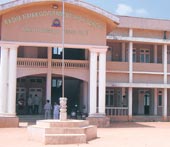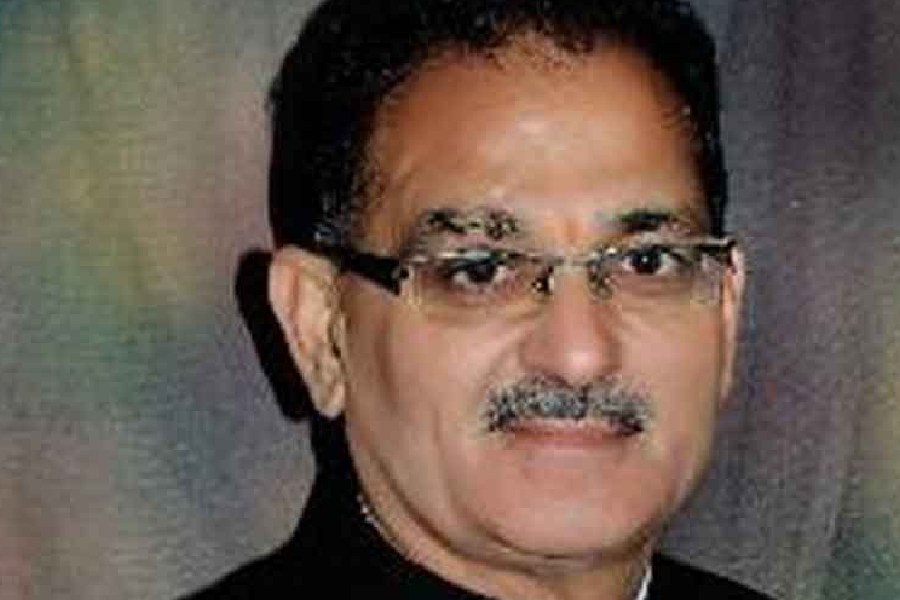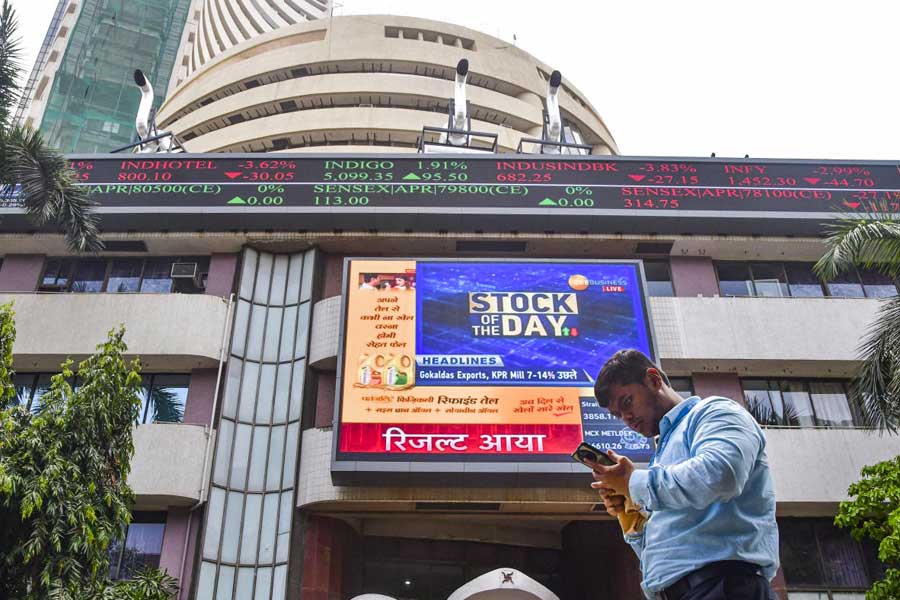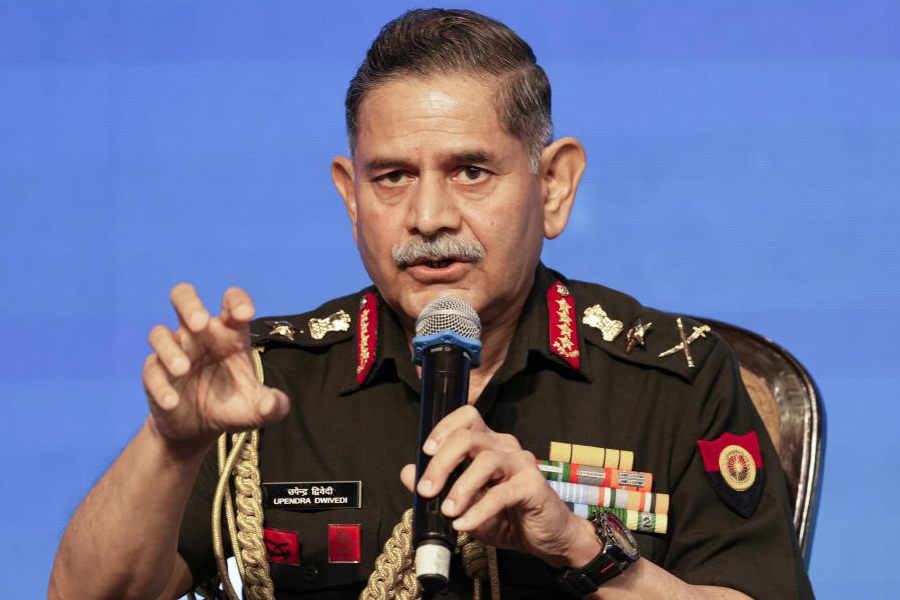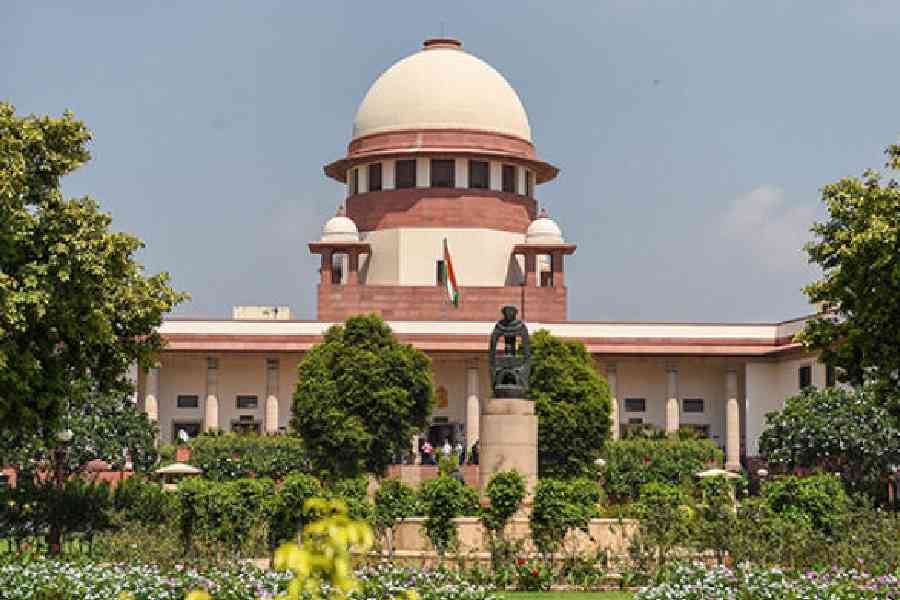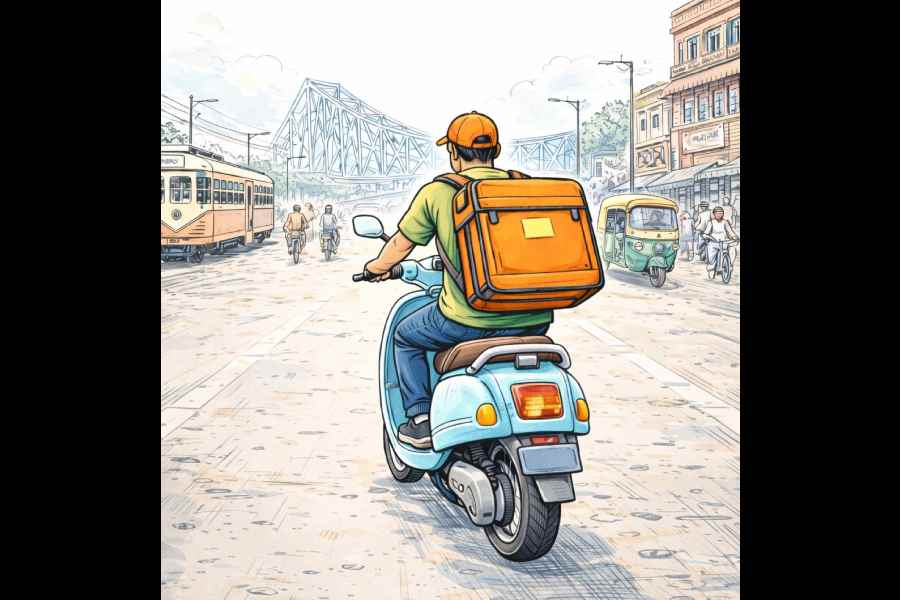 |
 |
| ROLE MODEL: Radha Nayak Government High School built by Daya Nayak (top); Nayak’s portrait in the headmaster’s office |
Yennehole is like any blink-and-you-miss-it village on the winding Western Ghat state highway. Located 65 km from Mangalore, on coastal Karnataka, the village lies nestled between thick coconut groves and paddy fields. Beaten mud tracks lead up to the red-tile-roofed houses that dot the landscape.
It’s hot even on an early March morning and the village’s solitary shop is shut. There is no one to give directions. But locating Yennehole’s High School is not a problem. You just need to turn into the only tarred road in the village.
The Radha Nayak Government High School looks like it’s been constructed in Yennehole by mistake. After the pint-sized mud huts, the school’s three-winged single-storeyed building ? built on 6.4 acres of land cut out of a mountain-side ? seems like a work of architectural art.
Yennehole’s High School is controversial cop Daya Nayak’s homage to his home village. Mumbai Police’s best known encounter specialist grew up in a tiled mud house just off Yennehole’s main road. The son of a poor paddy farmer, Nayak studied in the village primary school before running away to Mumbai to make money.
And money ? Mumbai’s Anti-Corruption Bureau (ACB) suggests ? he made plenty. Cash was clearly lavished on the edifice that Daya Nayak built. Looking more like an up-market public school than a government-run high school, it has 16 classrooms, an auditorium, a library, a computer room, a fully-equipped laboratory and a sprawling playing field.
Nayak’s house has been lying locked for years. But the prodigal son has kept his home bonds alive. Nayak set up the Radha Nayak Trust ? named after his mother ? in the late 1990s, acquired land from the Karnataka government, donations from well-off friends and got a High School constructed ? reportedly at a cost of Rs 1 crore. Before this, students from the village had to trek seven kilometres to Ajekar ? the closest town to Yennehole ? to go to high school.
School authorities insist that post construction, Nayak has had nothing to do with it. “The school was handed over to the state government on the day it was inaugurated, in September 2002. Nayak has no stake in it,” says P. Raghuram Bhatt, the school headmaster, as he digs out official file after file that certifies that everything in the school belongs to the Karnataka government.
Yet Nayak is omnipresent in the school. Enter the headmaster’s office and the cop ? dressed in full police finery ? smiles down at you from a blown-up, ornately-framed photograph on the wall.
The office and auditorium walls are lined with photographs of the school’s inauguration-day celebrations. There is a photograph of Amitabh Bachchan lighting a lamp, Karnataka politician Veerappa Moily delivering a speech and actors Suniel Shetty and Sanjay Dutt waving to the villagers. Dressed in a dapper black suit, Nayak is present in every frame.
It’s been four years since the inauguration but any villager will narrate a blow-by-blow account of the day’s happenings. “It was like a festival day in the village. No one ever comes to Yennehole ? even local politicians give the village a miss during election time,” says Balakrishna K, English teacher at Radha Nayak School.
And since Amitabh Bachchan is a hundred politicians rolled into one, the local cashew factories and beedi-rolling workshops were closed on inauguration day. “Nobody went to work. Everyone gathered at the school to watch the celebrities,” says Balakrishna.
Yennehole also got its first tarred road then. “The taluk Panchayat got the road leading to the school paved for the guests,” says Balakrishna.
Amitabh Bachchan may be in the Anti-Corruption Bureau’s bad books for attending Yennehole’s school inauguration but that hasn’t soured the village’s memories of the mega event. Also, the ‘disproportionate assets’ case against Daya Nayak ? or the charge that he killed at least 80 people in encounters ? hasn’t dented his popularity in the village. “Daya Nayak is a local hero,” says P. Haji, headmaster of Yennehole’s primary school.
In a village that is yet to produce a post-graduate student, Daya Nayak is a phenomenon. “It gave the villagers great pride to know that one of their boys was killing dreaded criminals in Mumbai,” says Haji. And they are not about to let their claim to fame go easily.
Two weeks ago, villagers and students of the Radha Nayak School staged a day-long hunger strike to protest against Daya Nayak’s arrest. Bhatt says that some 500 villagers and 300 students participated in the strike and sent a petition to President Kalam on behalf of Nayak.
“We don’t believe Nayak is guilty,” says Atmiya J. Kadamba, a class X student of Radha Nayak School. “A man who builds a school in a small village can’t be on the mafia payroll. He can’t be good and bad at the same time.”
That’s for the ACB to decide. For Yennehole, a student strike and effigy burning were unprecedented events. But never before had a village boy ? who picked cashew for one rupee a day and washed lorries in the river to earn money ? become rich, driven home in a flashy red Zen and doled out hundreds of rupees to former fellow-villagers like it were loose change.
Not surprisingly, Yennehole’s students are suddenly dreaming big. “Daya Nayak’s success has filled people with hope,” says Haji. “They want to go to the city and get rich.”
Of the 60 students who passed from Radha Nayak High School last year, 34 have gone on to join college in Karkala, a Jain temple town situated 10 km from the village. “In the last three years, Radha Nayak School has had 99 per cent pass results,” says Bhatt, proudly pointing to a result chart pasted on the office wall. He adds that the school’s student strength has gone up from 240 to 283 in the last one year.” That’s a remarkable jump for a village which doesn’t have a culture of education,” says Bhatt.
In comparison, the ACB’s charges against Nayak are a non-issue for the villagers. “Nayak has done good for the village. That’s what matters to us,” says Daya Nayak’s relative, Narasimha Nayak.
Narasimha is Daya Nayak’s only family in Yennehole. The paddy farmer lives in a one-room hut with his family of five. Daya Nayak ? who lived a lane away ? used to be his friend and the gang leader of the group. “After school, we worked for money. It was always Daya’s idea. He could never sit still,” recalls Nayak’s country cousin.
Nayak has a meal with his relatives every time he visits the village. “But he never talks about his work,” says Narasimha. The Mumbai cop last visited Yennehole three months ago. He followed his regular routine ? a short chat session with Radha Nayak School’s students and lunch with Narasimha.
But he never mentioned that this would probably be his last trip to Yennehole in a long time to come.

